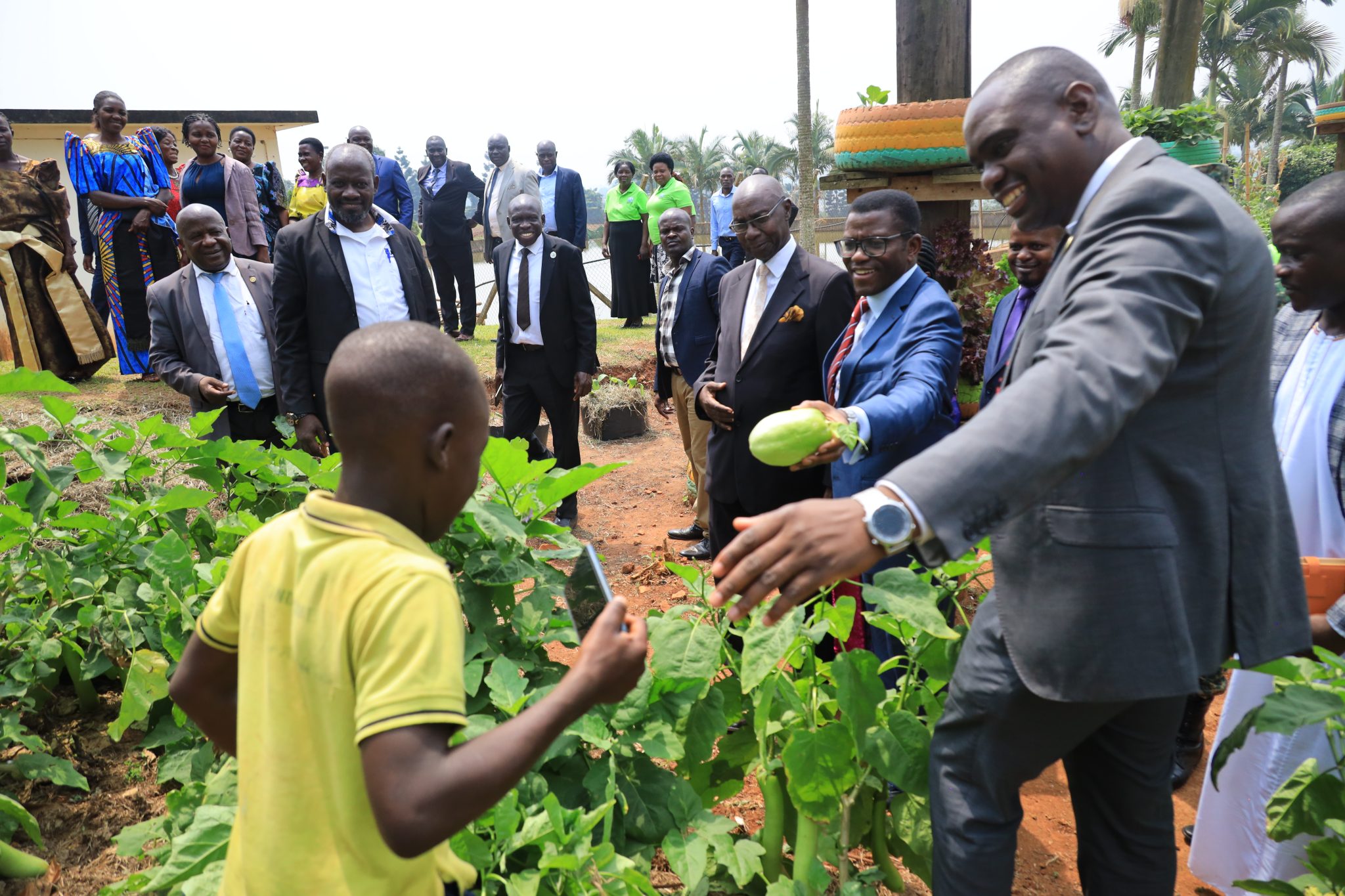As Uganda grapples with the looming threats of climate change, agriculture sector stands at a crossroads. Climate related challenges are being felt in every farming community. These include, unpredictable rain patterns, increasing temperatures and the rising costs of inputs. This is pushing many farmers to the edge. Chicken producers for example are grappling with rising costs of feeds due to crop failure, water scarcity, high motility due to increased disease and pests incidences and reduced productivity of birds due to heat stress among many other climate change induced challenges.
The need for climate-resilient solutions is no longer a distant necessity; it’s an urgent priority. It is against this background that MUZARDI is leading implementation of Greening the Chicken Value Chain project which aims at increasing climate resilience among chicken value chain players with a keen focus on the youth. The young people have invested in the chicken value chain, but many are struggling to breakeven. On the brighter side, there is a cohort of youths who are innovating to solve problems not only of their peers but also the entire value chain.
Recognizing this, MUZARDI in collaboration with Gudie Leisure Farm (GLF) organized the first-ever Chicken Value Chain Climate Resilient Innovation Challenge. This activity sought to tap into the ingenuity of Uganda’s youth. With over 50 submissions received from all over the country, this competition exhibited a remarkable potential of young innovators to mitigate climate change effects on the poultry value chain.
From hardware to software solutions, these young minds proved that Uganda can and should be at the forefront of agricultural innovation for climate resilient chicken value chain. Take the Smart Kuku team, for example, which took home the top prize. These invented an automatic control box designed to regulate heat in a brooder. In many farms, the highest rates of mortality happens between days 1 to 21, mostly due to temperature fluctuation in the brooder.
Smart Kuku brooder is providing a solution to farmers who need affordable, energy-efficient solutions. Innovations like these can make a difference between thriving in the face of climate challenges and losing an entire flock to cold stress.
The project did not stop at giving prizes. The top 20 innovators were enrolled in a mentorship program, where they have been receiving intellectual property support and entrepreneurial guidance necessary to scale their solutions.
What the innovators are up to
MUZARDI through the project awarded the top 3 innovators with cash prizes to advance their ideas and prototypes to scale. Some of the technologies have been installed at the institute for validation and testing market fitness.
Smart Kuku Brooder
Before November 2024, MUZARDI like many poultry farms in Uganda were using charcoal for brooding. In addition to being unreliable, this outdated method is also labor-intensive, as it demands constant, 24/7 monitoring of the chicks. All that changed when the institute installed the Smart Kuku brooder. Mortality has reduced significantly, and technicians no longer have to lose sleep over chicks since the system can send SMS messages on their phones. The project is supporting the Smart Kuku team to integrate solar in their system.
Solar Incubator
The first runners-up in the competition were Agro Vision Uganda who innovated a solar incubator. It is public domain knowledge that most smallholder farmers in Uganda rely on natural incubation. This however is unproductive and very unreliable. Even those who might want to use incubators, there is a supply gap in the service since most hatcheries do not accept small egg quantities. Enters Agro Vision who are solving this problem with their small-scale incubator.
These too installed their latest version of the incubator which is being validated. MUZARDI will use this 200 – 300 egg capacity to support the existing commercial incubator while reducing reliance on fossil fuel generators. Just like their company name, Agro Vision envisions every able farmer at the parish level to be able to incubate their eggs without hassle and worry of power outages.
Innovation has always been at the heart of NARO. This project contributes to efforts to tap into the ingenuity of Uganda’s largest youth population. Chicken value chain players deserve better solutions, and our first cohort of youth innovators will continue to be supported by the NARO-wide ecosystem. The time for climate resilience is now, and MUZARDI will contribute to work with forward-looking partners such as GLF and the University of Burundi to ensure that these innovations don’t just remain ideas and prototypes but become the reality which will contribute to improving productivity and
profitability in the chicken value chain.

